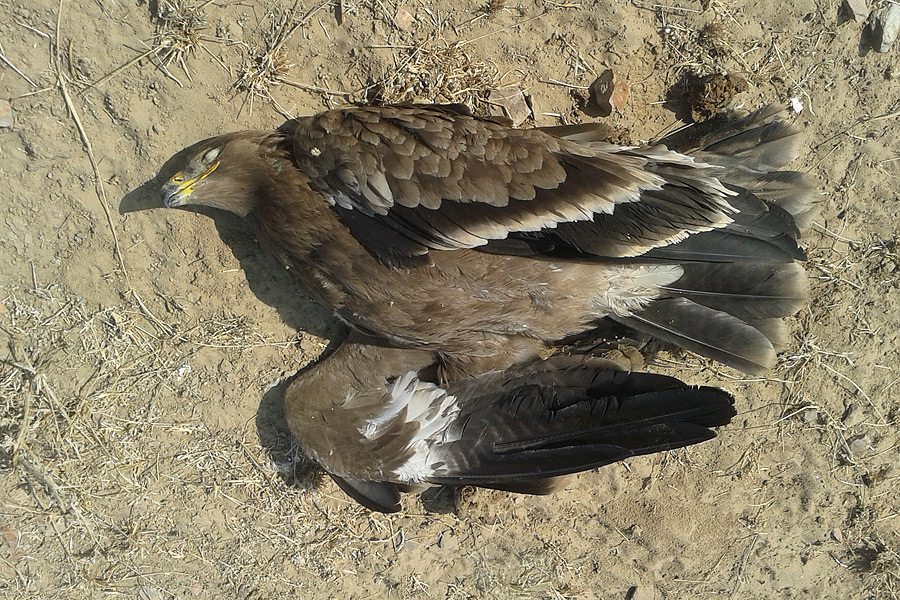
Population of three Gyps vultures — white-backed, long-billed vulture and slender-billed — in South Asia decreased by about 90% in the 1990s due to contamination of their carrion food supply with the anti-inflammatory drug diclofenac. Since 2006, the use of diclofenac has been banned in India. The IUCN Red Data Book has listed these vultures as ‘critically endangered’. Despite the ban, there is still some unauthorised (and illegal) veterinary misuse of diclofenac using multi-use vials meant for human consumption.
Shockingly, a recent study (see abstract) reports evidence of diclofenac toxicity to Steppe Eagles (Aquila nipalensis) at a cattle carcass dump in Bikaner, Rajasthan, making this the first incidence of diclofenac-related mortality to species outside the Gyps vultures.
Conservation India will provide a more detailed update on these findings.
Read more on Conservation India about veterinary diclofenac’s threat to vultures and other raptors.

 CI is a non-profit, non-commercial portal that aims to facilitate wildlife and nature conservation by providing reliable information and the tools needed to campaign effectively.
CI is a non-profit, non-commercial portal that aims to facilitate wildlife and nature conservation by providing reliable information and the tools needed to campaign effectively.
Chosen as 'Picture of the Week'
Diclofenac, the anti-inflammatory drug that caused the catastrophic decline of vultures on the Indian subcontinent and elsewhere may have wider implications than once believed. Recent cases of Steppe Eagles succumbing to the effects of the drug are a cause for serious concern.